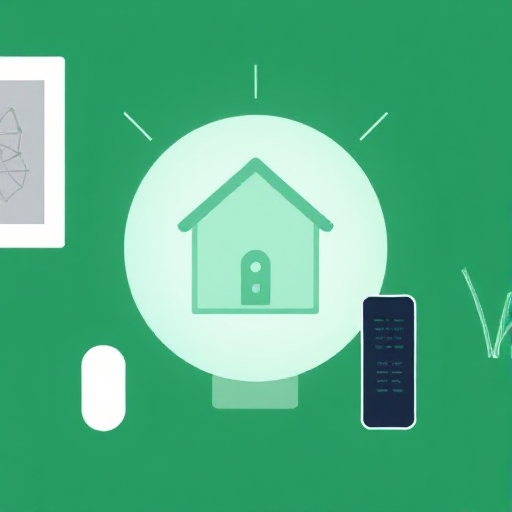
The remote work revolution has reshaped the job market, with technology roles leading the charge. However, to succeed in remote tech jobs, you need a mix of technical expertise, soft skills, and familiarity with remote work practices. This article provides a comprehensive guide to upskilling for remote tech roles, helping you stand out in a competitive job market.
1. Understand the Requirements of Remote Tech Jobs
Remote tech roles vary across industries, but common categories include software development, data analysis, cybersecurity, digital marketing, and IT support. To determine the skills needed:
- Research job postings: Analyze job descriptions for your desired role to identify key technical and soft skills.
- Consult industry trends: Use resources like LinkedIn, Stack Overflow, or GitHub to understand in-demand technologies and tools.
2. Develop Technical Skills
Technical expertise is the foundation of any tech role. Focus on the following:
A. Programming Languages and Frameworks
Learn languages relevant to your target field:
- Web development: HTML, CSS, JavaScript, React, Angular.
- Data science: Python, R, SQL.
- Mobile app development: Swift, Kotlin, Flutter.
B. Tools and Platforms
Proficiency in tools specific to your role is essential. Examples include:
- Version control systems: Git, GitHub, GitLab.
- Cloud platforms: AWS, Azure, Google Cloud.
- Project management tools: Jira, Trello, Asana.
C. Specialized Knowledge
Explore domain-specific expertise such as:
- Cybersecurity: Penetration testing, ethical hacking, security frameworks.
- DevOps: CI/CD pipelines, Docker, Kubernetes.
- AI and Machine Learning: TensorFlow, PyTorch, NLP tools.
3. Enhance Remote Work Skills
Working remotely demands skills beyond technical proficiency:
A. Communication Skills
Strong communication is vital in a remote setup:
- Master written communication for emails, reports, and collaboration tools like Slack.
- Practice clear and concise verbal communication for virtual meetings.
B. Time Management and Productivity
Efficient time management ensures consistent performance:
- Use tools like Google Calendar, Toggl, and Notion to organize tasks.
- Adopt productivity techniques like the Pomodoro Technique or time blocking.
C. Collaboration and Teamwork
Remote collaboration tools facilitate teamwork:
- Learn to use tools like Zoom, Microsoft Teams, and Miro.
- Understand asynchronous work practices to respect different time zones.
4. Leverage Online Learning Platforms
Online resources make upskilling accessible and affordable:
- Coursera and edX: Offer courses from universities on programming, data science, and more.
- Udemy and Pluralsight: Provide affordable courses on specific tools and technologies.
- FreeCodeCamp and Khan Academy: Great for beginners to learn programming fundamentals.
- YouTube: A wealth of tutorials and practical coding examples.
5. Build a Portfolio and Gain Experience
A strong portfolio showcases your skills to potential employers:
- Create personal projects: Build apps, websites, or data visualizations.
- Contribute to open-source projects: Collaborate on GitHub to gain practical experience.
- Freelance or volunteer: Use platforms like Upwork or Fiverr to work on real-world projects.
6. Earn Certifications
Certifications validate your expertise and boost credibility:
- Cloud computing: AWS Certified Solutions Architect, Google Cloud Professional.
- Cybersecurity: CompTIA Security+, CISSP.
- Project management: PMP, Agile Scrum certifications.
7. Network in Tech Communities
Building connections can open doors to opportunities:
- Join platforms like LinkedIn, Reddit, or Discord to connect with professionals.
- Participate in virtual tech meetups, webinars, and hackathons.
- Engage in online forums like Stack Overflow to contribute and learn.
8. Prepare for Remote Job Applications
Polish your application materials to highlight your readiness for remote work:
- Tailor your resume: Highlight technical skills and remote work experience.
- Craft a compelling cover letter: Emphasize your adaptability and remote collaboration skills.
- Prepare for virtual interviews: Practice with video calls, ensuring your setup is professional.
9. Stay Updated with Industry Trends
The tech industry evolves rapidly. Stay ahead by:
- Following blogs, podcasts, and YouTube channels dedicated to tech advancements.
- Reading industry reports and attending conferences.
- Exploring emerging fields like blockchain, edge computing, or quantum computing.
10. Adopt a Growth Mindset
Upskilling is an ongoing process:
- Embrace challenges as opportunities to learn.
- Seek feedback from peers and mentors.
- Set measurable goals to track your progress.
Upskilling for remote tech jobs requires a proactive approach to learning, networking, and adapting to the demands of the digital workplace. By focusing on technical proficiency, remote work skills, and continuous improvement, you can position yourself for success in the ever-growing remote tech industry. Start today, and watch your career thrive in the global remote landscape.






